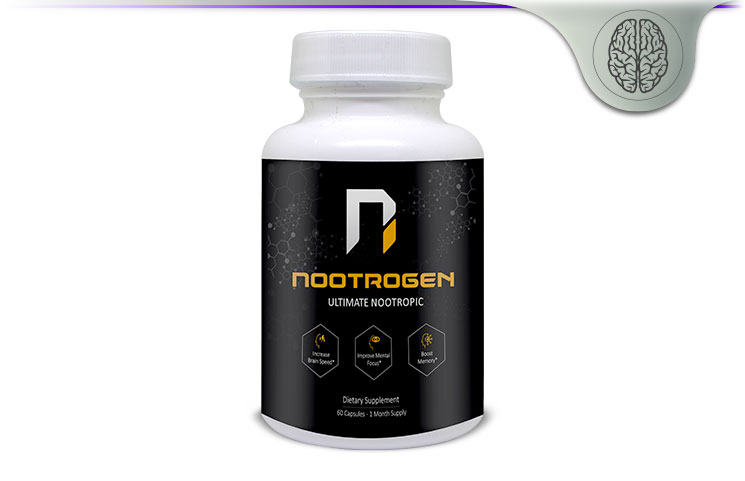Nootrogen claims to help its users to enhance brain function. Additionally, Nootrogen may work in the following ways:
- Could increase memory recall
- May enhance focus
- Claims to boost brain processing speed
What Are The Benefits Of Nootrogen?
Boost Memory
The special blend of ingredients inside each capsule of Nootrogen may help to stimulate a process in the brain that's called synaptic plasticity. Synaptic plasticity is a vital neurochemical basis for learning and memory. It involves the strengthening or weakening of your brain's synapses.
In other words, it is that your brain's capacity to keep old neural connections and create new ones over time, making new neural pathways to retain information that is learned.
Improve Concentration and Focus
There's an increasing demand for any medication to help concentrate. In a world where there's an increasing amount of distractions, individuals need the ability to concentrate intensely on facets of their daily lives like working on projects at their job or to study for a big test.
Fortunately, Nootrogen comprises several vitamins gaining concentration in a formula made with organic ingredients. Certain ingredients like bacopa extract and green tea extract have stimulatory properties, assisting you to keep awake and alert. This alert awareness has a direct effect on mental clarity, which is as catalyst for improving productivity
Increase Brain Processing Speed
An Australian study of adults aged 18 to 65 suggests that taking 300 milligrams of bacopa extract daily for up to 12 weeks may improve brain function.
Employing a variety of tests of cognitive performance, the analysis demonstrated that subjects could process visual information more quickly, find out quicker and combine new substance into memory more efficiently.
Nootrogen Ingredients
Dimethylaminoethanol
Dimethylaminoethanol is responsible for improving disposition, fostering the purpose of the memory, increasing physical vitality, and perhaps raising levels of cognitive processing in the mind. This is a result of the consequential rise in levels of choline in the blood and brain, which if true to concept, should raise levels of acetylcholine.
Glutamic Acid
Glutamic acid, also works to improve mental focus and concentration. The primary biochemical use of glutamic acid is thought to be increasing the activity of the neurotransmitter acetylcholine. It may also be used in the production of the neurotransmitters gamma-aminobutyric acid (GABA) and glycine.
It is also the sole neurotransmitter that affects the engine part of the somatic nervous system. Furthermore, acetylcholine is the principal neurotransmitter for the autonomic ganglia.
Magnesium
Research has suggested that calcium is a critical component in the activation of neural channels which are included in synaptic plasticity. Consequently, this makes magnesium a crucial part from the physiological events that are indispensable to the practice of memory and learning.
1 variation of magnesium particularly, magnesium sulfate, may possess the unique ability to permeate the mind and enhance the receptors that are involved in this procedure.
Vitamin B5
Vitamin B5 studies have shown that it might regulate hormone level inconsistencies in the mind. As a result, it may possess the capability to reduce stress, anxiety, as well as signs of depression. Vitamin B5 may also aid in reducing body fatigue too as it also balances the hormones related to feelings of fatigue or alertness, and boosts the metabolism.
Studies have shown that a vitamin B6 deficiency may negatively influence memory functioning and contribute to cognitive impairment.
Bacopa Extract
The bacosides at Bacopa monnieri have been analyzed and have shown to enhance cognitive functioning by enhancing the neurological pathway for the transmission of neural impulses.
Consequently, bacopa is presently a promising topic of research in the treatment of ADHD. Care deficit/hyperactivity disorder (ADHD) often starts in childhood, and continues through adolesence.









